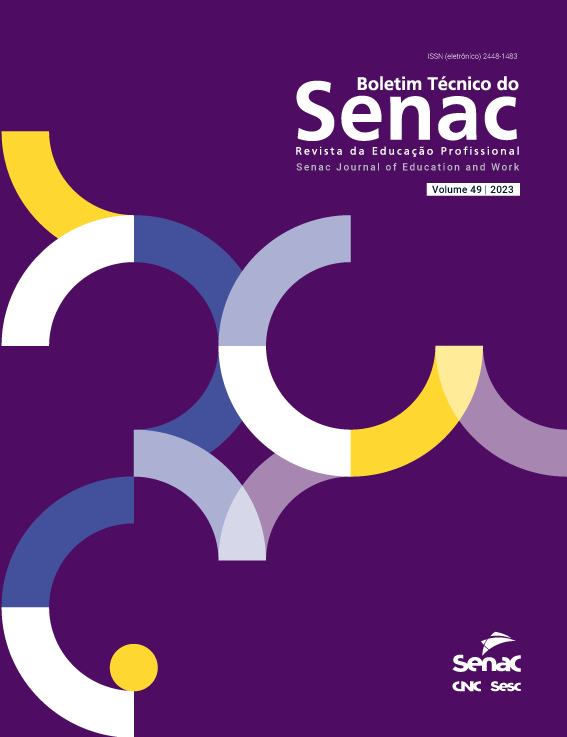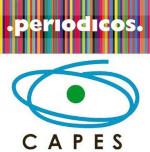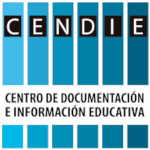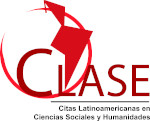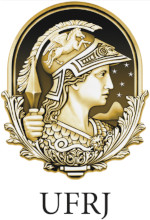Sustentabilidade ambiental e agroecologia: uma experiência de extensão na formação em gastronomia
DOI:
https://doi.org/10.26849/bts.v49i.934Abstract
In view of the prevailing and prevalent agricultural production model in Brazil that has disregarded the assumptions of environmental sustainability and the consequences of this reality on gastronomy, this study aimed to understand a little more about the possible contributions of the Read-Gastronomy project (Interdisciplinary Ecological System Laboratory Learning) in the training of some extension students who study a gastronomy course. We also sought to understand the understanding of these same students about concepts such as environmental sustainability in gastronomy, agroecology, among others. It is a qualitative research, whose scenario is the extension project in question involving 8 students in addition to 2 teachers involved in the Read Project. An analysis of Read documents was carried out in addition to interview statements, based on semi-structured scripts. The results elucidated possible changes in professional posture and greater awareness and awareness of environmental sustainability and its relevance in gastronomy arising from participation in the project. This denotes the relevance of extension projects like this that insert students in gastronomy into the productive methods of the inputs used in the kitchens.
Downloads
References
AGÊNCIA NACIONAL DE VIGILÂNCIA SANITÁRIA (Brasil). Resolução RDC nº 216, de 15 de setembro de 2004. Dispõe sobre Regulamento Técnico de Boas Práticas para Serviços de Alimentação. Brasília, DF: Anvisa, 16 set. 2004.
ÁGORA FIOCRUZ. Isenções e reduções fiscais na comercialização, industrialização e uso de agrotóxicos no Brasil. 12 set. 2019. Disponível em: https://agora.fiocruz.br/2019/09/12/isencoes-e-reducoes-fiscais-na-comercializacao-industrializacao-e-uso-de-agrotoxicos-no-brasil/. Acesso em: 2 set. 2020.
ALENCAR, Gabriel Aaquino; SÁ, Jonivan Martins de. Sustentabilidade e educação ambiental: incentivo social e a relação com a gastronomia. Missões: Revista de Ciências Humanas e Sociais, v. 2, n. 1, 2017.
BARBER, Dan. O terceiro prato. Rio de Janeiro: Bicicleta Amarela, 2015.
BOFF, Leonardo. Saber cuidar: ética do humano-compaixão pela terra. Petrópolis, RJ: Vozes, 2017.
EHLERS, Eduardo. Agricultura sustentável: origens e perspectivas de um novo paradigma. São Paulo: Livros da Terra, 1996.
EMBRAPA. Marco referencial em Agroecologia. Brasília, DF: Embrapa, 2006.
FAO. Perdas e desperdícios de alimentos na América Latina e no Caribe. [S. l.]: ONU, 2017.
FERREIRA, Leidryana da Conceição. Educação ambiental e sustentabilidade na prática escolar. Revista Brasileira de Educação Ambiental, v. 14, n. 2, p. 201–214, 2019.
FREIRE, Paulo. Pedagogia do oprimido. 25. ed. Rio de Janeiro: Paz e Terra, 1998.
FREIRE, Paulo. Pedagogia da autonomia: saberes necessários à prática educativa. São Paulo: Paz e Terra, 1996.
MARTINS, Ana Paula Bartoletto et al. Participação crescente de produtos ultraprocessados na dieta brasileira (1987-2009). Revista de Saúde Pública, São Paulo, v. 47, p. 656-665, 2013.
MEDEIROS, Aurélia Barbosa de et al. A importância da educação ambiental nas escolas nas séries iniciais. Revista da Faculdade Montes Belos, v. 4, n. 1, p. 1-17, set. 2011.
MOURA, Tania Maria de Melo. A prática pedagógica dos alfabetizadores de jovens e adultos: contribuições de Freire, Ferreiro e Vygotsky. 2. ed. Maceió: Edufal, 2004.
OLIVEIRA, Bruna de et al. Operação taioba: o uso de plantas alimentícias não convencionais (PANC) e da agricultura urbana na construção do senso agroecológico de escolares da rede pública de São Leopoldo, RS. Cadernos de Agroecologia, [s. l.], v. 13, n. 1, 2018.
ONU. Word Population Prospects 2019. Disponível em: https://population.un.org/wpp/. Acesso em: 3 out. 2020.
PEIXOTO, Marcus; PINTO, Henrique Salles. Desperdício de alimentos: questões socioambientais, econômicas e regulatórias. Boletim Legislativo, Brasília, DF, v. 1, n. 41, p. 1-14, 2016.
PETRINI, C. Slow food: princípios da nova gastronomia. São Paulo: Senac, 2009.
PINTO, Nathalia Lima. Apetite por mudança: gastronomia e sustentabilidade em diálogo. 2018. Tese (Doutorado em Gastronomia) – Universidade Federal de Santa Catarina, Florianópolis, 2018.
RIBEIRO, Helena; JAIME, Patricia Constante; VENTURA, Deisy. Alimentação e sustentabilidade. Estudos Avançados, São Paulo, v. 31, n. 89, jan-abr., 2017.
RUBIM, Rebeca. Ester. A ecogastronomia nos cursos superiores de gastronomia do estado de São Paulo: conceitos, aplicações e cenário observado. Rosa dos Ventos - Turismo e Hospitalidade, São Paulo, v. 5, n. 2, 2013.
SAVIANI, D. A pedagogia no Brasil: história e teoria. Campinas, SP: Autores Associados, 2008. (Coleção Memória da Educação).
VIEITES, Renato Guedes. Agricultura sustentável: uma alternativa ao modelo convencional. Revista Geografar, Curitiba, v. 5, n. 2, p. 1-12, jul-dez., 2010.
Downloads
Published
How to Cite
Issue
Section
License
Commitment to the Provision of Creative Commons Licensing
The Senac Journal of Education and Work is per the BY NC license, free of charge and with no commercial purpose.
In submitting their work for evaluation, the authors undertake to make their work available through the Creative Commons-BY NC license at the website <https://br.creativecommons.org>, thus dispensing with the need for signing any other document or contract with Senac to regulate the availability of their works in the Senac Journal of Education and Work.
The author (s) further declare that they recognize the Senac Journal of Education and Work as an open access journal, whose Policies and Authors Guidelines are available to know on its official website, namely - www.bts .senac.br - and that they can be modified at any time, and immediately any new condition published online.
The names and addresses informed in this journal will be used exclusively for the services provided by this publication and are not available for other purposes or to third parties.

